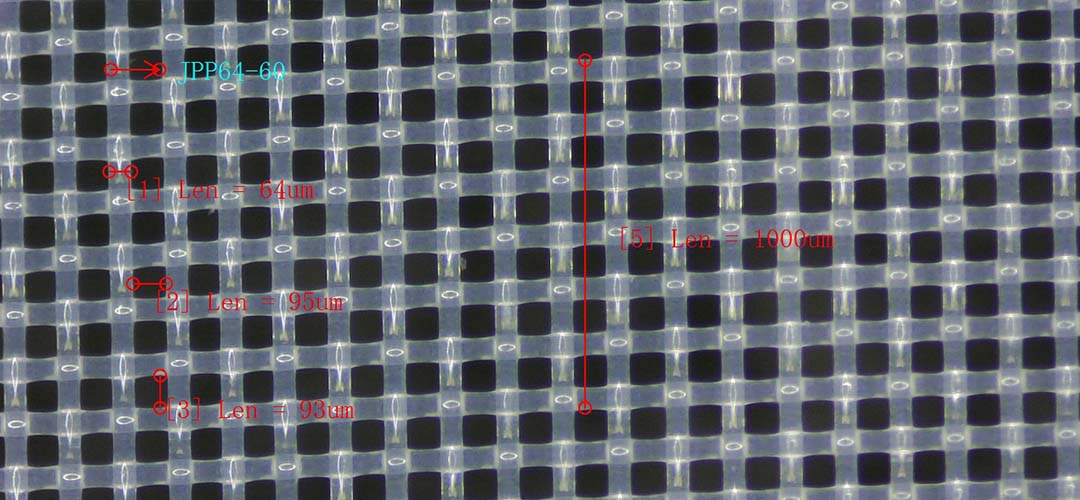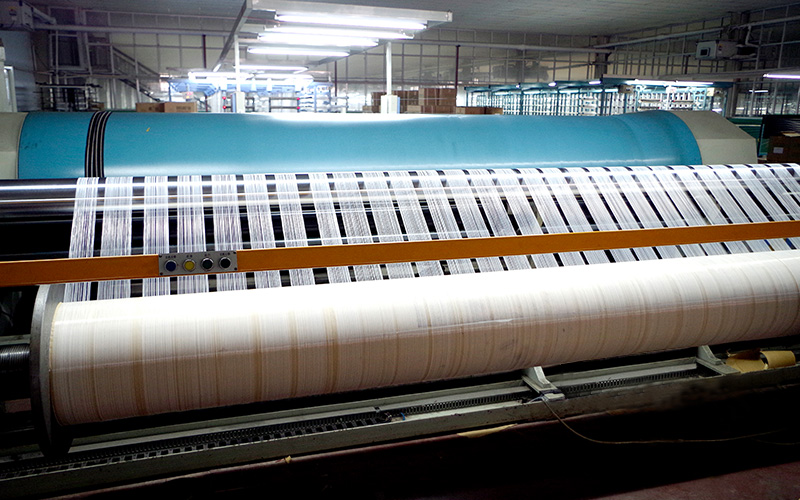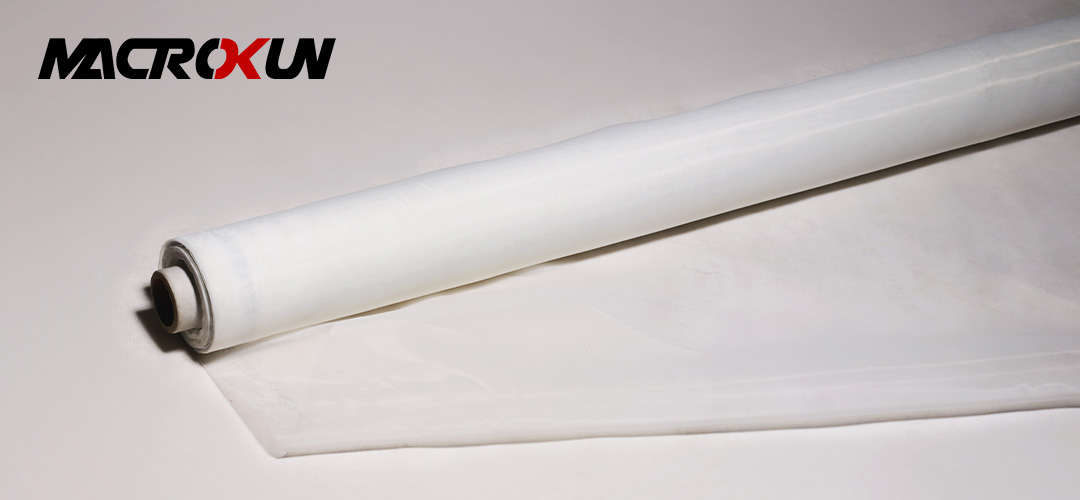In the realm of industrial applications, the choice of filtration systems plays a crucial role in ensuring operational efficiency and product quality. Among the various options available, heavy-duty nylon mesh filters have emerged as a preferred solution for many industries. These filters offer a multitude of benefits that can significantly enhance performance, making them an invaluable asset in various settings.
One of the primary advantages of heavy-duty nylon mesh filters is their exceptional durability. Constructed from high-quality nylon, these filters are designed to withstand harsh conditions, including extreme temperatures and corrosive environments. This resilience not only extends the lifespan of the filters but also reduces the frequency of replacements, leading to lower maintenance costs over time. Consequently, businesses can allocate resources more effectively, focusing on core operations rather than constant filter replacements.
Moreover, heavy-duty nylon mesh filters provide excellent filtration efficiency. Their fine mesh structure allows for the effective removal of particulates, contaminants, and debris from liquids and gases. This capability is particularly beneficial in industries such as food and beverage, pharmaceuticals, and chemicals, where maintaining product purity is paramount. By ensuring that only clean materials pass through the system, these filters help to uphold quality standards and comply with regulatory requirements, ultimately safeguarding the reputation of the business.
In addition to their filtration capabilities, heavy-duty nylon mesh filters are also highly versatile. They can be customized to meet specific application needs, including varying mesh sizes and configurations. This adaptability makes them suitable for a wide range of industrial processes, from water treatment to oil filtration. As industries evolve and new challenges arise, the ability to tailor filtration solutions becomes increasingly important. Heavy-duty nylon mesh filters can be easily integrated into existing systems, providing a seamless transition and minimizing downtime.
Furthermore, the lightweight nature of nylon mesh filters contributes to their ease of installation and handling. Unlike heavier filtration systems, these filters can be installed quickly and efficiently, reducing labor costs and downtime during setup. This ease of use is particularly advantageous in fast-paced industrial environments where time is of the essence. Additionally, their lightweight design allows for easier transport and storage, further enhancing operational efficiency.

Another significant benefit of heavy-duty nylon mesh filters is their cost-effectiveness. While the initial investment may be higher than some alternative filtration options, the long-term savings associated with reduced maintenance, extended lifespan, and improved efficiency often outweigh the upfront costs. Businesses can achieve a higher return on investment by minimizing operational disruptions and ensuring consistent product quality.
Lastly, the environmental impact of heavy-duty nylon mesh filters should not be overlooked. Their durability and reusability contribute to a reduction in waste, as they can often be cleaned and reused multiple times before needing replacement. This sustainability aspect aligns with the growing emphasis on eco-friendly practices within the industrial sector, allowing companies to enhance their corporate social responsibility initiatives while also benefiting from improved operational performance.
In conclusion, heavy-duty nylon mesh filters offer a comprehensive solution for industrial applications, combining durability, efficiency, versatility, and cost-effectiveness. By investing in these advanced filtration systems, businesses can maximize performance, ensure product quality, and contribute to sustainable practices, ultimately positioning themselves for success in an increasingly competitive landscape. As industries continue to evolve, the role of effective filtration will remain critical, making heavy-duty nylon mesh filters an essential component of modern industrial operations.
When it comes to selecting the right heavy-duty nylon mesh filter for your specific needs, several factors must be considered to ensure optimal performance and efficiency. First and foremost, it is essential to understand the application for which the filter will be used. Different industries, such as food processing, pharmaceuticals, and manufacturing, have unique requirements that dictate the type of filter needed. For instance, a filter used in a food processing plant must meet stringent health and safety standards, while one used in a manufacturing setting may prioritize durability and resistance to harsh chemicals.
Once the application is identified, the next step is to evaluate the mesh size of the filter. The mesh size determines the particle retention capability of the filter, which is crucial for maintaining the quality of the fluid being processed. A finer mesh will capture smaller particles, but it may also lead to increased pressure drop and reduced flow rates. Conversely, a coarser mesh allows for higher flow rates but may not effectively filter out all contaminants. Therefore, it is vital to strike a balance between filtration efficiency and flow rate based on the specific requirements of your application.
In addition to mesh size, the material composition of the nylon mesh filter plays a significant role in its performance. Heavy-duty nylon is known for its strength and resistance to abrasion, making it an excellent choice for demanding environments. However, not all nylon filters are created equal; some may be treated with additional coatings to enhance their chemical resistance or to provide anti-static properties. Understanding the environmental conditions in which the filter will operate, such as exposure to chemicals or extreme temperatures, will help in selecting a filter that can withstand these challenges without compromising its integrity.
Furthermore, it is important to consider the filter’s design and construction. Heavy-duty nylon mesh filters come in various configurations, including pleated, cylindrical, and flat designs. Each design has its advantages and disadvantages, depending on the space available and the flow dynamics of the system. For example, pleated filters typically offer a larger surface area, which can enhance filtration efficiency and extend service life. On the other hand, cylindrical filters may be more suitable for applications with limited space. Therefore, assessing the physical constraints of your system is crucial in making an informed decision.
Another critical aspect to consider is the maintenance and replacement schedule of the filter. Heavy-duty nylon mesh filters are designed for durability, but they still require regular cleaning and replacement to maintain optimal performance. Understanding the expected lifespan of the filter and the ease of maintenance can help in minimizing downtime and ensuring continuous operation. Additionally, some filters are designed for easy cleaning, which can significantly reduce labor costs and improve overall efficiency.
Finally, it is advisable to consult with manufacturers or suppliers who specialize in heavy-duty nylon mesh filters. They can provide valuable insights and recommendations based on their expertise and experience in the field. By collaborating with knowledgeable professionals, you can ensure that you select a filter that not only meets your immediate needs but also aligns with your long-term operational goals. In conclusion, choosing the right heavy-duty nylon mesh filter involves a comprehensive evaluation of application requirements, mesh size, material composition, design, maintenance needs, and expert guidance. By carefully considering these factors, you can maximize performance and achieve the desired outcomes for your specific application.
Heavy-duty nylon mesh filters are essential components in various industrial applications, providing efficient filtration while ensuring durability and longevity. To maximize their performance and extend their lifespan, it is crucial to implement a consistent maintenance routine. Regular maintenance not only enhances the filter’s efficiency but also reduces the likelihood of costly replacements and downtime.

First and foremost, routine inspections are vital. By regularly examining the filters for signs of wear, damage, or clogging, operators can identify potential issues before they escalate. During these inspections, it is important to check for any physical damage, such as tears or fraying in the mesh, which can compromise filtration efficiency. Additionally, operators should assess the accumulation of debris or contaminants on the filter surface, as this can hinder airflow and reduce performance.
Once inspections are complete, cleaning the filters is the next critical step. Heavy-duty nylon mesh filters can typically be cleaned using water and mild detergents. It is advisable to avoid harsh chemicals that may degrade the nylon material. A gentle scrubbing with a soft brush can help dislodge stubborn particles without damaging the mesh. After cleaning, it is essential to thoroughly rinse the filters to remove any residual detergent, as leftover chemicals can lead to deterioration over time. Allowing the filters to dry completely before reinstallation is also crucial, as moisture can promote mold growth and further compromise the filter’s integrity.

In addition to regular cleaning, proper storage of the filters when not in use can significantly impact their longevity. Filters should be stored in a cool, dry place away from direct sunlight and extreme temperatures. Exposure to harsh environmental conditions can weaken the nylon material, leading to premature failure. Furthermore, stacking filters improperly can cause deformation, which may affect their performance when reinstalled. Therefore, it is advisable to store them in a manner that prevents any physical stress on the mesh.
Another important aspect of maintenance is monitoring the operating conditions in which the filters are used. Heavy-duty nylon mesh filters are designed to handle specific flow rates and pressure levels. Operating outside these parameters can lead to excessive wear and tear. Therefore, it is essential to ensure that the system is functioning within the recommended specifications. If the filters are consistently exposed to higher-than-expected loads, it may be necessary to consider upgrading to a more robust filtration solution or implementing a more frequent maintenance schedule.
Moreover, keeping detailed records of maintenance activities can provide valuable insights into the filter’s performance over time. By documenting cleaning dates, inspection results, and any repairs made, operators can identify patterns that may indicate when a filter is nearing the end of its useful life. This proactive approach allows for timely replacements, minimizing disruptions in operations.
In conclusion, maintaining heavy-duty nylon mesh filters is a multifaceted process that requires diligence and attention to detail. By conducting regular inspections, cleaning the filters appropriately, storing them correctly, monitoring operating conditions, and keeping thorough records, businesses can significantly prolong the life of their filtration systems. Ultimately, these practices not only enhance performance but also contribute to overall operational efficiency, ensuring that the investment in heavy-duty nylon mesh filters pays off in the long run.
Pre: How Mesh Nylon Filters Simplify Liquid Filtration Processes
Next: Customizing Nylon Mesh Bags for Specific Filtration Needs

MACROKUN has established long-term and stable cooperative relations with many transportation companies such as China Post, DHL, FEDEX, USPS, UPS, etc. Of course, MACROKUN can also provide air and sea transportation. The powerful logistics system enables all MACROKUN'S Printing Mesh, Filter Mesh and Filter Bags and so on to be easily and efficiently transported to any place. For quotes and inquiries, please email our sales team.





